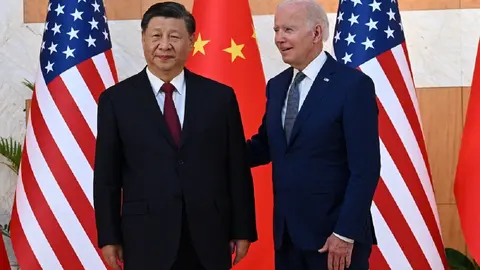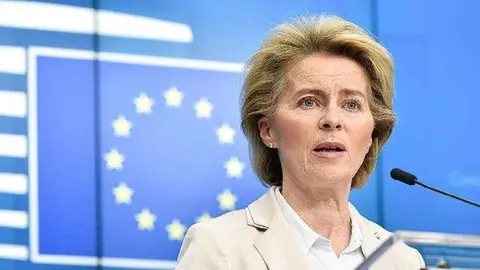EU seeks to shield its technology and economic interests from China

The European Union on Wednesday unveiled a package of proposals to better coordinate the protection of its technologies and critical infrastructure from falling into the hands of a geopolitical rival like China.
The package of proposals includes measures on strengthening the foreign investment control mechanism that the bloc adopted in late 2020, especially to improve coordination between countries.
The European Commission, the EU's executive arm, also launched draft legislation on the day to ensure that member countries of the bloc "have a monitoring mechanism" for foreign investment.
The measures in the package will still have to be negotiated with MEPs and member states.
The package seeks to address a fundamental limitation of the European institutions, which have no power to block investments as the final say rests with each country.
The Commission intends to examine the risks of European investments in third countries in terms of knowledge leakage in certain technologies that could strengthen "military and intelligence capabilities".
Another idea in the package is to develop better coordination on export controls, in particular on dual-use goods (civilian and military) as well as electronic components.
Exports of nuclear and missile technologies would also be placed under greater control.
"We need to improve our coordination to better protect ourselves, make investments safer and control the export of sensitive goods to prevent them from falling into the wrong hands," said EU Trade Commissioner Valdis Dombrovskis.
Russia's war against Ukraine hit Europe, whose industry relied on cheap Russian gas, hard and prompted the EU to look for alternative sources of energy.
Now the EU wants to avoid a similar dependence on China, which dominates the production of green technology and key raw materials.
In October, the EU released a list of four critical technologies - advanced semiconductors, artificial intelligence, quantum computing and biotechnology - that present the most sensitive and immediate risks related to security and technology leakage.
The EU is in the process of implementing measures to produce more and reduce dependence on Chinese imports of products such as microprocessors, wind turbines and solar panels.
However, it seeks to intensify its production while remaining an open continent, reducing risks vis-à-vis China but without relinquishing economic relations with a key market for its companies.
"Improving our economic security will allow us to keep our economic model open and to act more effectively against risks," Dombrovskis said.










